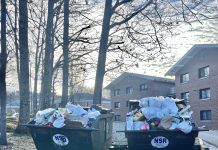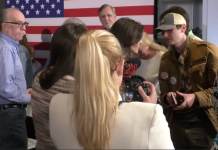A few weeks ago, I was waiting in line to pay at Market Basket when a man in front of me apologized to the high school aged boy bagging his groceries. “Sorry, forgot my reusables at home,” he said with a half-smile while putting his credit card in the chip reader. The teenager shrugged and told him it was alright. The woman at the register was older and smiled up at the man whilst handing him a receipt. “It’s the thought that counts.”
It seemed the world was starting to acknowledge plastics had become a problem. People seemed to slowly become more aware of their plastic consumption and the environmental consequences of single use items. Bans on plastic bags became more popular and the plastics industry began taking a massive blow.
In 2019, state lawmakers introduced at least 95 bills related to plastic bags. Most of these bills would either ban or place a fee on plastic bags. You could practically hear the environment sigh in relief; change was coming.
However, the sigh was short lived.
On March 31st, New Hampshire became the first state in the U.S to ban reusable bags as a result of the pandemic. Massachusetts followed, temporarily banning reusable shopping bags while removing the charge for using a paper and plastic ones. Maine pushed their plastic bag bans off for another year. New York suspended their plastic ban that had originally started on March 1st.
Currently, there is no evidence to suggest that reusable bags contribute to the spread of the Coronavirus. Yet, during these uncertain times, it may be necessary to err on the side of caution.
However, it is important to recognize that the plastics industry had taken tremendous hits in recent months, and now it appears the spread of Coronavirus has presented an opportunity for the industry to make a comeback.
Matt Seaholm, Executive Director of the American Recyclable Plastic Bag Alliance, stated that bag ban suspensions are good for public health. Seaholm followed this statement up with, “there is ample scientific research concluding reusable bags can contribute to the spread of bacteria and viruses, and now more than ever state and local governments need to take every step possible to ensure people are safe and healthy.”
An example of this “ample” scientific research can be found in an oft-cited study by researchers at the University of Arizona and Loma Linda University indicating that reusable bags can contain bacteria and that many individuals who utilize reusable bags don’t wash them very often, presenting a possible health issue. Interestingly, the study was funded by the American Chemistry Council, which represents major chemical and plastic manufacturers.
However, organizations that continue to push for reusable packaging say properly washed reusable items are as safe as disposables. Single use plastics also have the ability to harbor bacteria and viruses. Researchers in the New England Journal of Medicine published that the virus could live up to three days on plastic.
Collectively, it is still important to be mindful even when handling single use plastics and continue to practice healthy hygiene habits when touching anything from stainless steel to plastics.
In the midst of trying to fight the novel Coronavirus, the environment has been moved to the back burner. Right now, the world needs to strive to protect one another, but it is important we come back to protect the environment–the two go hand-in-hand.
I went to the grocery store for the first time in weeks a few days ago. I was hypervigilant of the things I touched and stood on a strip of blue tape in line while a man six-feet behind me rambled on loudly about how much the world has changed as a result of COVID-19. I rocked back and forth on my heels, watching as the cashier placed my groceries into a plastic bag behind a plastic shield.





















